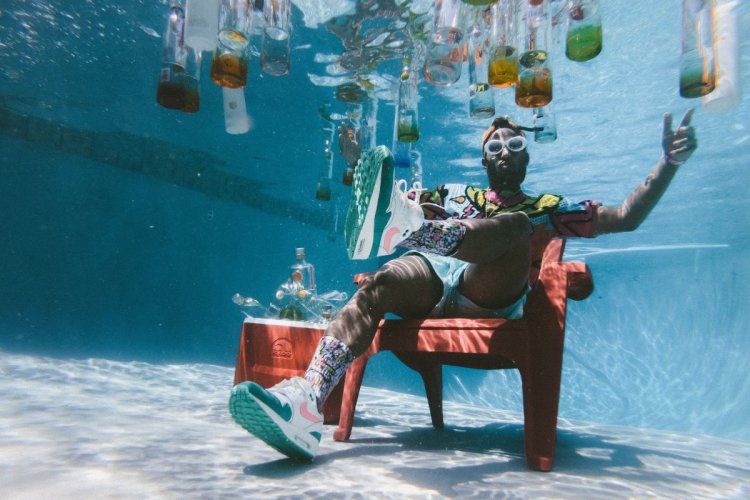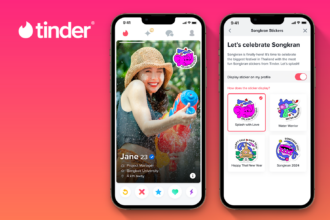2020 has been a difficult year for marketing professionals. The ever-changing digital landscape coupled with the great leveler and delayer of the coronavirus pandemic has made it difficult for marketers to innovate and expand on their achievements as we enter a new decade.
Marketing budgets have been slashed, and the limited creativity we have seen has come in the form of sentimentally tinged lockdown-themed content. Assuming the virus can be controlled and a sense of normality returns, 2021 could be a year of huge marketing innovation. Of course, certain trends will rise to the top and lead to the brands utilising them correctly dominating their market. But which trends will lead the way?
In-person events. After a year of social distancing, canceled conferences and communicating through screens, consumers will be yearning for in-person events throughout 2021. People will be looking to get two years’ worth of concerts, conventions and networking events into one in 2021, presenting marketers with a huge opportunity to capitalise on hunger for in-person marketing.
For digital brands, physical events have always presented an opportunity to introduce themselves to less-online markets and give their business a human face for consumers to associate with. After a year without exposure, this will be key for digital brands and help them build on the empathetic work they’ve done with their coronavirus campaigns.
Sponsoring and selling at events were already established as some of the best ways for brands to reach new customer bases and plug into existing, passionate communities prior to the virus. Though some consumers will be cautious at first, a hunger for normality will drive people to these events, particularly throughout the summer of 2021.
Pop-up shops and influencer collaborations will likely go from strength to strength throughout the year, as brands look to capitalise on a desire from the consumer for an ‘experience’, whether that is meeting someone they follow on social media or picking up an exclusive item only available temporarily through physical stores.
Once the initial caution has dissipated, these events will become one of the best ways to capture audiences and drive them towards online destinations.
New media appearances. New media isn’t really a fair term to collate podcasts, streaming and social media appearances under anymore. For many people, this is their preferred method of not just reading news, but connecting with their favourite celebrities, influencers and brands.
Maximising these platforms will be essential throughout 2021. With more time indoors and online, people have discovered these new forms of media, many for the first time. This creates a whole new, highly susceptible audience, that marketers will need to latch onto to rebuild the audience bases they lost to coronavirus.
Appearance and advertising on these platforms, whether it’s sponsoring an emerging podcast or holding a Reddit AMA, will be key for establishing brands as modern and relatable. Coronavirus has made people question which brands do genuinely care about their customers, so coming to them on their preferred platforms rather than trying to advertise through old channels will become imperative to regaining trust.
As viewing habits and schedules transform in a post-coronavirus world, consumers will be less likely to watch a TV ad or spend hours scrolling on Facebook than they are to spend an evening enjoying live streams. Understanding the preferences and subtleties of new media will be the key to getting ahead of competitors throughout 2021.
Dynamic content. Being able to adapt has always been a key marketing skill, but in 2021 it will be essential for keeping up with a constantly changing landscape trying to find its feet after a year of coronavirus. The way marketers reacted to coronavirus is a great example of dynamic marketing. Across the industry, professionals noticed emerging national sentiments and channeled them into effective advertising that promoted a message of being in this together.
In 2021, without that message to fall back on, marketers will have to stay alert to changes in not just coronavirus but measures to lift restrictions. Events will become celebrations of returning to normality, playing on people’s desire to get together and meet industry colleagues and fellow fans again.
Dynamic emails will need to be able to adapt to people’s particular interests, especially as coronavirus creates a widened poverty gap that will render some products just not applicable to many consumers. The key to this will be effective use of customer data. If marketers can learn to consistently apply what they’re learning about customers quickly alongside a message that feels of the moment, they will have a successful 2021.
Employee advocates. Throughout this article, we’ve spoken a lot about the role that influencers will play throughout these key marketing trends in 2021. However, they are not as all-powerful as they once were. Many have argued that coronavirus has led to the downfall of the influencer. Some have made poor branding decisions at a time of economic hardship, while others have fallen victim to cuts in marketing budgets, leaving them with diminished reach and exposure.
Rather than putting the future of their brand in the hands of a few influencers likely working with many other companies, we may see more businesses turning to their own employees for digital content. Employee advocacy is an emerging marketing trend that looks to take many of the elements of influencer marketing and apply a more human touch to them. Influencer content is all about relatability and feeling like you can trust the person advertising to you. Employee advocacy takes that a step further.
The key to this kind of campaign is making employees a part of your brand. It largely involves staff at a company taking to social media to praise working conditions and promote certain products and events. This can evolve into employees becoming prominent fixtures in marketing and content, as many new media brands have experienced success in.
We expect this to dominate 2021 due to the heightened relatability it offers to consumers. The average consumer is likely to be less financially secure and have higher standards when it comes to marketing. Seeing real people promoting the business they work for will have a positive effect on their perception of the brand and allow businesses to rebuild themselves as relatable.
Marketing won’t be hugely different in 2021 to what we’ve seen in recent years. It will offer a chance for marketers to finally build on what we’ve learned, while also applying the lessons of the coronavirus pandemic. Lockdown has made us a more digital species that equally yearns for human interaction. Balancing that line and reacting quickly will be key.














